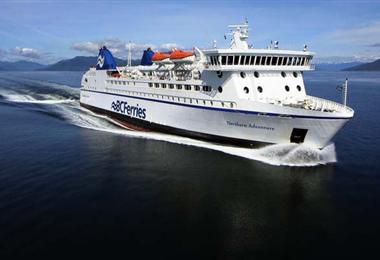UPDATE: Nov. 29, 2013 – The B.C. transportation minister’s office is denying the report. We will provide more details as they become available.

Blog post:
It’s a sure-fire bet that whenever major changes are made to the B.C. Ferry system the howls of outrage from ferry users are quick to follow.
And the reaction was no different to the B.C. government’s three-step program to right the ferry company’s bottom line. The money-losing ferry service needed some kind of fix, but whether this latest one will satisfy ferry users is doubtful.
Nevertheless, the status quo wasn’t an option unless the government increased the annual taxpayer subsidy to B.C. Ferries. The subsidy now approaches $200 million (that’s almost $2 billion over 10 years) and it’s hard to argue why it should be higher, given the low ridership and the need of more funding for other government services.
Government revenues are projected to increase by about $2 billion over the next two years. About half of that will go to health care. Does the ferry system rank ahead of education or social services when it comes to allocating the rest of the money? I don’t think so. Some of the changes make sense. Requiring seniors to pay half-fares during the week rather than allowing them to ride for free is hardly a draconian measure.
While many seniors are on fixed incomes and don’t have a lot of disposable income, a lot more of them have accumulated various amounts of wealth and presumably can afford a $15 ferry fare (according to B.C. Ferry statistics, the vast majority of travelling seniors take their vehicles, which suggests they can indeed afford a ferry fare).
- Meter mixup: B.C. woman’s power bill swapped with neighbours for over a decade
- Family says probe into B.C. Mountie’s suicide has left no one accountable
- Burnaby RCMP release sketch of man accused of sexually assaulting 80-year-old woman
- ‘I’m gonna push’: First-time B.C. mother delivers her own baby on way to hospital
I suspect we will eventually see the end of a lot of other senior discounts when it comes to various services, by the way. The number of seniors will soon mushroom, as the Baby Boomer generation eases into retirement, and that may make companies think twice before providing senior discounts.
The reduction in the number of sailings is more controversial. There are those who continue to insist the ferry system should be treated as a mere extension of the highway system. In its early days, the ferries were indeed treated as part of the road network, but those days are long gone.
One of the critical differences between travelling on a highway and riding a ferry is that on one you can travel by yourself, but on the other you have to pay for people to travel with you. I’m referring to the crew on a ferry, and the size of that crew on B.C. Ferries range from six to 48, depending on the size of the vessel.
The size of the crew is mandated by Transport Canada, and B.C. Ferries must follow those rules. That means on some sailings, there may be fewer passengers than crew members.
For all the talk about executive salaries and free ferry passes for B.C. Ferries employees, the fact is neither play much of a role in shaping the company’s bottom line, at least not compared to the biggest cost drivers in the system: fuel costs and labour.
To be sure, those relatively small number of people inconvenienced are going to make their feelings heard, loud and clear. The fact is, even with these sailing reductions every route except three will continue to lose money.
The one proposed change by the government that may not ultimately proceed is the idea of putting slot machines on ferries. The idea smacks of cynicism and even desperation, particularly given numerous studies about the negative impact too much gambling can have on society.
Overall, the changes to the ferry system are controversial and hurt some communities more than others. But until the provincial government’s revenues substantially improve, it’s hard to see many other options.



Comments